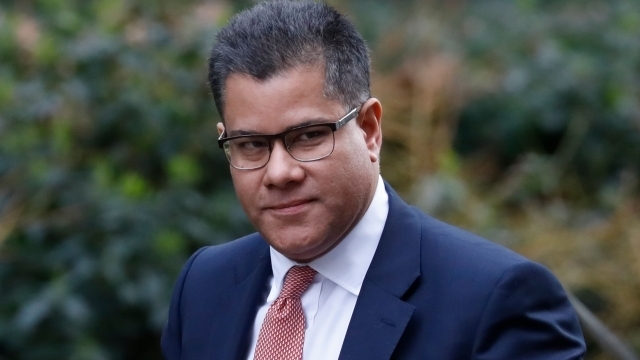
Opening concert of Annual Meeting 2025 in Davos-Klosters to address glacier melt in Antractica
The opening concert of the Annual Meeting 2025 in Davos-Klosters will address the pressing issues ...

The funding will go to global communities most at risk from the impact of coronavirus due to long-term conflict, food and water shortages, and crowded living conditions.
Bringing together scientists and researchers from across the world, 20 new projects will benefit from a share of the £7.2 million of the UK government funding to develop new technology and processes to address the challenges faced by some of the world’s most vulnerable people, such as refugees and children.
In partnership with some of the UK’s leading research institutions, these international projects include a project by the University of Oxford and the University of Cape Town to develop a parental advice app for families affected by COVID-19 school closures across Africa.
The Birmingham City University will partner with Lusaka and Ndola Colleges of Nursing to help improve the clinical decision making of nurses in Zambia, helping to free up their time and prevent healthcare systems from becoming overwhelmed
The University of Sheffield will work with the UN Refugee Agency to make personal protective equipment with digital and 3D printing for Jordan’s Zaatari refugee camp, home to approximately 80,000 Syrian refugees, helping to protect those living in crowded conditions that are most vulnerable to the virus.
Moreover, the University of Edinburgh will work with the Open University of Tanzania to identify measures to make voting safer and more secure in African elections to promote social distancing and to slow the spread of coronavirus.
Business Secretary Alok Sharma said “Defeating coronavirus is a truly global endeavor, which is why we’re backing Britain’s scientists and researchers to work with their international counterparts to find tech solutions to treat and combat this virus around the world.”
“The research projects we are backing today will ensure that we equip some of the most vulnerable communities with the resources they need to tackle COVID-19 and build their long-term resilience to respond to future pandemics, making us all safer.”
The opening concert of the Annual Meeting 2025 in Davos-Klosters will address the pressing issues ...
Juhayna Food Industries proudly announced that its agricultural arm, El Enmaa for Agricultural Development, has ...
The United Nations Environment Program (UNEP) and several partners launched a pilot project to build ...


اترك تعليقا